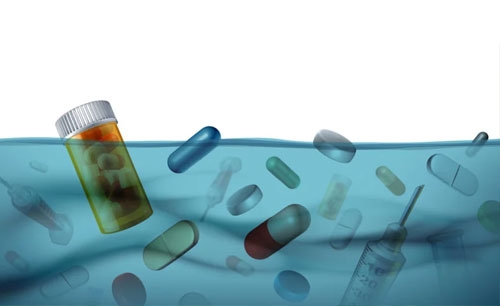Unused or expired medicines are a major source of pollution in our water bodies, and many people do not even realize they are affecting our aquatic life. Over half of all prescription and unused pills are in our water systems. While drug take-back programs may be convenient, they are not a practical solution for eliminating pollution and protecting aquatic life.
Depending on the location of your home, you might have to purchase an STP to handle your sewage. Generally, residential buildings need at least one STP to treat sewage. Many STPs are located underground, making them difficult to maintain. Moreover, you may not be able to inspect them without hiring an expert. It is better to consult a professional if you have any doubts about the process.
Drug take-back programs are inconvenient.
Many Americans throw away unused or expired medicines. However, there are alternatives, such as participating in a drug take-back program. However, these programs are not without drawbacks, including the inconvenience and costs associated with storing medications at home. Furthermore, it costs the economy $2 billion annually to implement a nationwide program for drug take-back. As environmental concerns continue to rise, drug disposal options may have to be re-evaluated.
The disposal of pharmaceuticals is a global problem. Drugs such as opioids and antibiotics have been found in soils and water bodies. Disposal of medicines properly is crucial to prevent pollution. When drugs are disposed of improperly, they often end up in the wastewater system or septic tanks and pollute water bodies.
They are expensive

Unused or expired medicines pose serious problems for human health, environmental health, and the effectiveness of healthcare. These substances are not only waste but also a major source of pollution. Many medications are discarded in the wrong places, including the sink or toilet, and disposed of down the drain, where they can pollute water bodies. Unlike disposed drugs, which are usually recycled, unused or expired medicines can cause contamination of soil, water, and groundwater.

The impacts of unused or expired medicines are not fully understood. The OECD calls for improved information on the proper disposal of these drugs. Different countries have different practices when it comes to disposal. Some countries have collection programs to collect expired drugs, which can be properly treated to protect the environment and human health.
They do not eliminate pollution.
Pharmaceuticals, such as unused or expired medications, can cause pollution in water bodies by passing through septic tanks, wastewater treatment plants, and soils. The federal government has published guidelines to curb the diversion of prescription drugs. Using safe disposal methods can prevent pollution and save you time and money. For example, pharmaceuticals should not be flushed down the toilet. Instead, they should be brought to a safe location.
The proper disposal of medicines is an essential part of environmental health. Disposing unused or expired medicines in a landfill poses a risk to public health and the environment. In addition to being a health risk, these medications represent wasted healthcare resources. Many developed countries have implemented policies and programs to dispose of expired medicines properly.
They do not protect aquatic life.
Unused or expired medicines can leach into aquatic systems and contain pharmaceutical residues. Unusable medicines can also end up in landfills, where they can be illegally disposed of. Unused medicines are a waste of healthcare resources and are not beneficial to aquatic life. According to Dana Rizzo, a water resources extension educator in Westmoreland County, Pennsylvania, pharmaceutical residues have an adverse effect on aquatic life.
They harm the environment.
Unused and expired medicines are a common waste that can be difficult to dispose of. They have several negative impacts on the environment and are also a burden on healthcare resources. They represented wasted healthcare resources and missed opportunities for treating patients. Rather than dumping these medications in landfills, people can use a take-back program to dispose of them safely.
This study aims to understand how unused and expired medicine affect the environment and water bodies. The study will use structured interviewer-administered questionnaires to gather data on the behaviour of individuals and their households in disposing of medicine. The questionnaires will include demographic data and the disposal of expired medicines. It will also collect information on consumers' knowledge about the harmful effects of improper medication disposal.







































Share Post